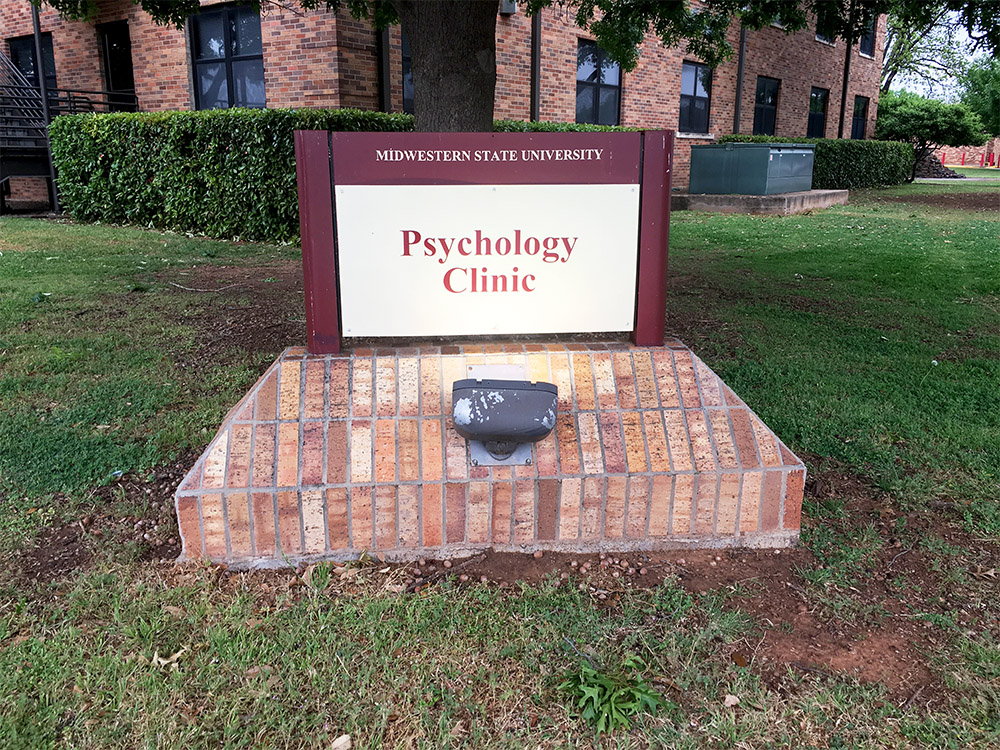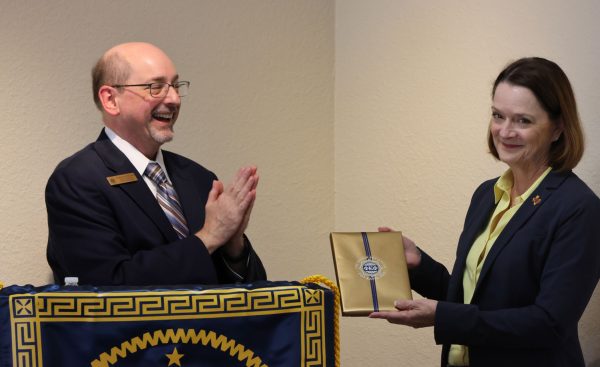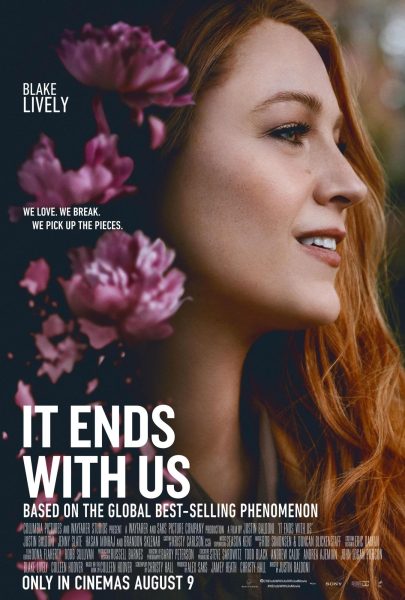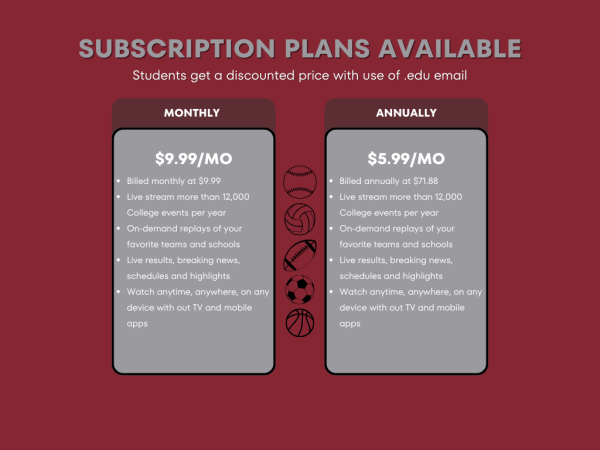Counseling center staff presents session on studying for finals
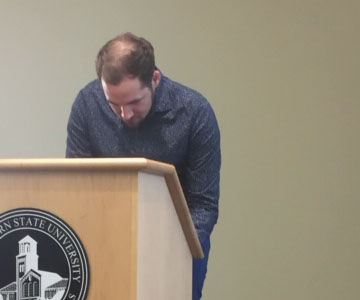
Zachary Zoet April 3, reviews his notes about visual style.
Staff members from the Counseling Center talked to the 12 students April 3 zeroing in on study skills focused on different styles of learning.
In his presentation, Zachary Zoet, a licensed professional counselor-intern, and friend of the Counseling Center said, “The goal for today is to empower you with knowledge of some studying skill and strategies. Another goal is to encourage you to cultivate your knowledge of what kind of study skills are best for you.”
Zoet uses food to explain all the styles and skills. Zoet spoke about a platter called Smorgasbord, which is a platter filled with meats and cheeses.
“You take what you want like meats and cheeses and that’s kind of the strategy today,” Zoet said. “There is probably going to be stuffed in this presentation that is not for you, that’s stuff like steamed brussels sprouts.”
This presentation being done every year to help students get ready for finals and it covers a wide variety of topics.“Smorgasbord” referred to the big four learning styles consisting of visual, auditory, reading/writing and kinesthetic.
“It’s helpful to know what kind of learner you are. That will inform which of the options will ‘taste’ good to you, and help you,” Zoet said.
He presented a basic outline of what each one was and how they could be fitted with one or more of each type. Visual people are the ones that like to see symbols and different formats, like different fonts and colors to emphasize important points.
His partner in this presentation, Vikki Chaviers, Counseling Center licensed professional counselor, chimed in to talk about how she is visual and used these skills to help pass her licensing test.
“Going back to my source materials, which were my textbook and notes from classes and to color code these different sections we were being tested on,” Chaviers said. “Like theories and technics, I remember I did a kind of a seafoam green color for those so everything I went back to in my textbooks I had a green pen and underlined things I thought that was important. Everything I found in my notes that I thought was important I got a green highlighter and highlighted.”
She took everything that was highlighted and transferred it over to green index cards to build up the idea that green means that certain subject.
Then Zoet began talking about the second out of the four which was auditory. These are the people that prefer to hear or talk the information.
The third style is reading and writing and “it’s self-explanatory” in that you benefit from writing it down and reading it multiple times.
“These are the people who like reading manuals and essays,” Zoet said during his presentation.
The final form people could be grouped into is kinesthetics. These are the students that have to act out everything they do and “prefer to use [there] experiences and the things that are real” to help students study. Some examples he gave were labs, exhibits, and photographs. The key phrase that Zoet said was “you need to do things to understand.”
Zoet talked about needing to take breaks later in his presentation and the room light up. It looks as if students became surprised to hear someone talk about needing to take breaks. Most of the time when you hear this presentation, the presenter just talks about the skill, but Zoet talked about “Keeping your car tuned up and the oil changed.”
The last thing that he talked about was asking for help now this may be because they are part of the counseling center but Zoet talks about how the ones who ask for help are the ones that survive.
“Don’t put your head in the sand and hope everything will be ok,” Zoet said.
The Counseling Center staff thought to change this presentation they had been giving for a number of years into something for finals week.
“Just recently we decided to change this up to say that you have the same topics generally, but you don’t study the same way for finals week as you do during the rest of the semester,” Chaviers said. “We have taken the three main topics the time management, the study skills, and the test anxiety and gear those in this very last section each semester fall and spring just to the upcoming finals.”
The main idea that the Counseling Center wanted students to take away from the presentation is that “hopefully something with everybody and maybe tries one of these and sees if [they] can pull [themself] out of a hole or keep [their] head above water it would be worth it.”



